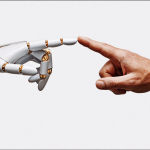

Microsoft’s enterprise layoffs signal dramatic tech industry shift toward AI-driven operations and automated sales functions
Key Takeaways
- Microsoft cuts 15,000 jobs in 2025 as part of its $80 billion AI investment strategy, with 9,000 positions eliminated in the latest wave targeting Xbox and traditional sales roles.
- AI proficiency now mandatory for all employees at Microsoft, with Copilot usage directly tied to performance evaluations as the company shifts to AI-driven business operations.
- Traditional sales roles face extinction as Microsoft replaces relationship-based representatives with solution engineers, signaling up to 40% of sales positions could be automated across the tech industry.
Introduction
Microsoft’s aggressive restructuring in 2025 represents the largest workforce transformation in the company’s recent history, with artificial intelligence driving both massive job cuts and fundamental changes in how employees work. The tech giant has eliminated over 15,000 positions while simultaneously investing $80 billion in AI infrastructure, creating a stark example of how automation reshapes corporate strategy.
The company now requires all remaining employees to integrate AI tools like Copilot into their daily workflows, with AI proficiency directly tied to performance evaluations. This mandate, combined with the systematic elimination of traditional sales roles, signals a broader industry shift away from relationship-driven business models toward data-centric, AI-augmented operations.
Key Developments
The latest round of layoffs affected nearly 9,000 jobs, with the Xbox gaming division and traditional sales teams bearing the brunt of the reductions. Combined with the 6,000 jobs cut in May and further reductions in June, the restructuring impacts approximately 4% of Microsoft’s global workforce.
Julia Liuson, President of the Developer Division, announced that AI integration has become non-negotiable for all employees. Internal emails show that Microsoft formally incorporates AI usage into employee performance evaluations, marking a fundamental shift in corporate culture and expectations.
The company is systematically replacing generalist sales representatives with solution engineers who possess deep technical knowledge of AI products. An internal memo from Chief Commercial Officer Judson Althoff outlined Microsoft’s transformation into what he calls “the Frontier AI Firm,” emphasizing technical expertise over traditional relationship-building skills.
Market Impact
Microsoft’s stock valuation remains strong in 2025, with investors largely supporting the AI pivot and related cost-cutting measures. The market views the $80 billion AI investment as necessary for long-term competitiveness, despite the significant workforce reduction.
The tech sector has experienced over 100,000 job losses in 2025 alone, with companies like Intel, IBM, Meta, and HP implementing similar restructuring strategies. This follows the 240,000+ layoffs recorded in 2024, indicating a sustained industry transformation rather than cyclical adjustments.
Industry analysts interpret these changes as structural shifts toward AI-driven business models, with traditional mid-level management and generalist roles facing systematic elimination across the sector.
Strategic Insights
Microsoft’s strategy reflects a fundamental reimagining of how technology companies operate and compete. The company reports that AI now generates 30% of its internal code, with projections suggesting this could reach 95% by 2030, directly impacting software engineering and product development functions.
The elimination of traditional sales roles represents a broader industry trend toward automation of customer-facing functions. Jason Lemkin, a prominent software investor, predicts that 30% to 40% of one-to-two call sales representatives could be replaced by AI across the industry.
Companies that successfully integrate AI into their operations while maintaining competitive advantage appear positioned to benefit from this transformation. Those relying on traditional business models face increasing pressure to adapt or risk obsolescence.
Expert Opinions and Data
Microsoft President Brad Smith addressed the layoffs, stating that efficiency gains from AI were “not a predominant factor” in the recent cuts. He cited shifting business priorities and the need to reallocate resources toward growth areas, while acknowledging that rising capital expenses have added pressure to reduce operating costs.
Rory O’Driscoll, a general partner at Scale Venture Partners, noted that Microsoft’s strategy focuses on enhancing employee effectiveness rather than simple replacement. “It’s hard to argue with that,” he remarked, pointing to the company’s drive for higher operational margins.
Tech analyst Radhika Taneja emphasized the broader implications: “AI proficiency will define future job security. Those who adapt early will thrive. Microsoft is simply setting the pace.” Her assessment reflects growing consensus among industry experts that AI skills have become essential for career survival.
According to Business Insider, the company’s focus on solution engineers over traditional sales representatives demonstrates how customer expectations have evolved in the AI era, requiring deeper technical knowledge for successful deal closure.
Conclusion
Microsoft’s 2025 transformation establishes a new paradigm for how technology companies balance human capital with artificial intelligence capabilities. The company’s mandatory AI adoption policies and systematic workforce restructuring provide a blueprint that other corporations are closely monitoring.
The broader implications extend beyond Microsoft, as the tech industry collectively moves toward AI-driven operational models that prioritize technical expertise over traditional relationship-building skills. This shift fundamentally alters career trajectories and skill requirements across the sector, making AI proficiency essential for professional survival in the evolving technology landscape.








